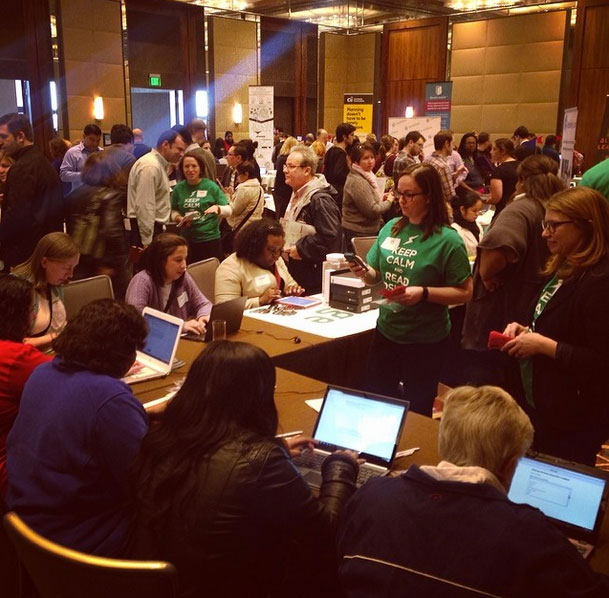A new nonprofit has been formed to bolster Baltimore’s fast-growing edtech community.
EdTech Maryland, which grew out of the Greater Baltimore EdTech Advisory Task Force, will focus on bringing edtech professionals together through events, and growing the local ecosystem by attracting talent and providing support for research.
The Task Force ran events like the EdSurge Baltimore Tech for Schools Summit. Now, the organization will throw its legal, nonprofit status behind that and other efforts.
Along with events, the organization will drive a Research Consortium that’s focused on lining up current curriculum research standards of 2-3 years with the rapidly changing nature of many edtech products.
Katrina Stevens, a consultant and commentator who most recently worked for the national edtech news site EdSurge, will serve as the organization’s executive director.
“We’re raising some funds to be able to add a few other people,” she said.
The organization is also supported by a board made up of the following local edtech heavyweights:
- Jennifer Meyer, chief operating officer at the Economic Alliance for Greater Baltimore (chair)
- Frank Bonsal, director of entrepreneurship at Towson University
- John Cammack, former T. Rowe Price executive
- Phyllis Hillwig, co-founder and chief strategy officer at Words & Numbers
- Andrew Coy, executive director of the Digital Harbor Foundation
- Vince Talbert, co-founder of Bill Me Later
Baltimore has a history of edtech success, with companies such as Sylvan and Laureate originating in the city. Recently, the local edtech community has seen a resurgence with homegrown startups like Allovue and the relocation of New York-founded companies like Three Ring and Citelighter.
Stevens said she wants the new organization to help tell the story of the local edtech community, and put Baltimore “on the map.”
She said the local community is unique in that many of the companies that originate in Baltimore are focused on producing products that have a “double bottom line,” meaning they are focused on creating a sustainable company that makes money as well as making a difference for students.
Since there isn’t as much investment money available in Baltimore as a place like Silicon Valley, many of the companies also have more concrete plans.
“You can’t raise tons of money on an idea, you actually have to have a revenue structure here,” Stevens said.







